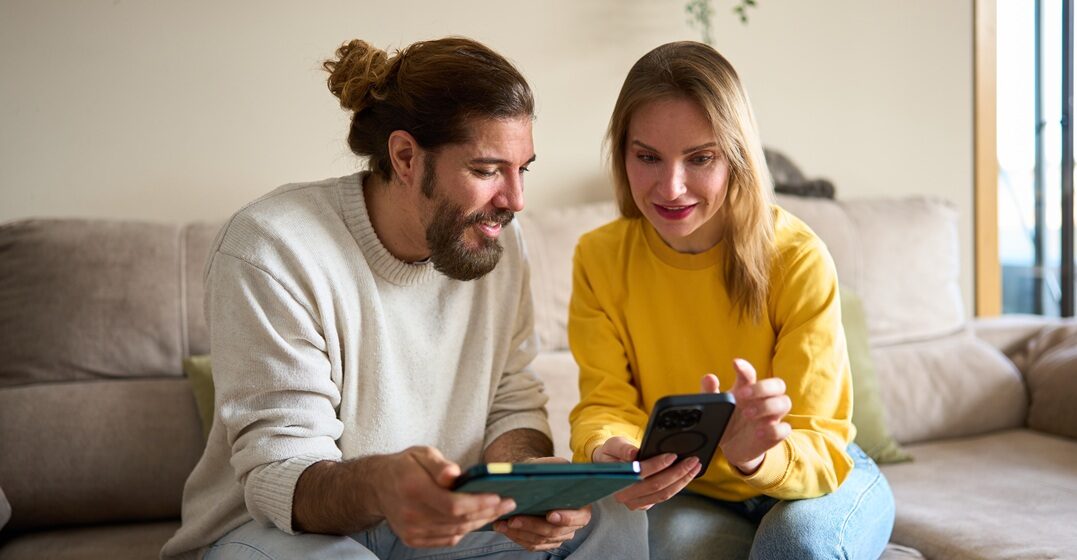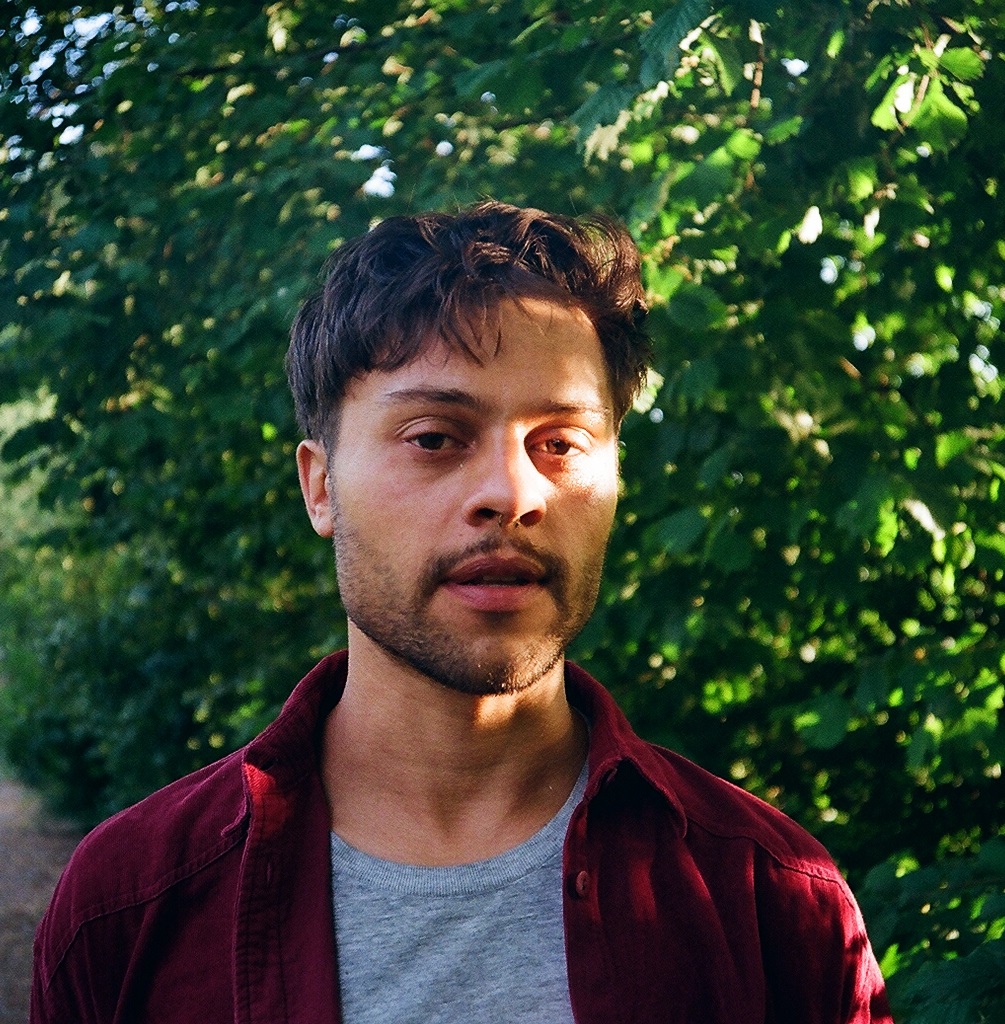Lingoda vs. Rosetta Stone: Which language learning platform fits your goals?
For expats in Germany who want to build real-life speaking fluency fast, Lingoda tends to be the better choice. Lingoda offers flexible online classes with native-level teachers, who follow a CEFR-aligned curriculum. Rosetta Stone focuses on slower, image-based self-study, which may appeal more to some independent learners.

As a prospective language learner, choosing between Lingoda and Rosetta Stone comes down to your needs, timeframe and expectations. After all, the best way to learn a language typically depends on your personal circumstances.
Rosetta Stone has developed its immersive, image-based learning method over decades; while unconventional, the method aims to mimic early language acquisition. Lingoda, on the other hand, is built around the principle that human interaction is the fastest way to learn a new language. To that end, Lingoda offers small-group or private classes led by native-level teachers.
In this guide, we’ll unpack both platforms’ approaches, pricing and results so you can decide which one actually fits your learning goals.
- Lingoda vs. Rosetta Stone: At a glance
- What are Lingoda and Rosetta Stone?
- Course offerings and language options
- Learning method and teaching style
- Curriculum structure and levels
- Practice, feedback and scheduling flexibility
- Pricing, trials and value for money
- FAQs
Lingoda vs. Rosetta Stone: At a glance
| Lingoda | Rosetta Stone | |
| Price | Subscription model with live classes starting at ~€10 per hour | Subscription-based app with options for 3 months, 12 months or lifetime |
| Languages offered | English, German, French, Spanish and Italian | 25 |
| Learning format | Small group or 1:1 classes | Self-paced software |
| Certification | CEFR-aligned | None |
| Feedback | Real-time feedback from real teachers | AI-driven |
| Schedule flexibility | 24/7 class booking | Learn anytime at your own pace |
| Best for | Serious, structured learners seeking measurable progress and a CEFR certificate | Casual learners who want to build vocabulary and grammar at their own pace |
What are Lingoda and Rosetta Stone?
In short: Lingoda and Rosetta Stone both teach languages online, but they differ sharply in approach. Lingoda offers live, teacher-led classes suited to expats who need to use German in daily life. Rosetta Stone provides self-paced, app-based lessons for independent learners.
Lingoda in brief
Lingoda is an online language school offering live, teacher-led classes. Lessons follow the CEFR framework (A1–C1), and learners can choose between small groups or private lessons. Lingoda is known for its structured curriculum, real conversation practice and flexible scheduling that works across time zones.
Lingoda is a popular choice among professionals and students who need real conversational practice with structured progress tracking. As one Reddit user attests, “Lingoda helped me reach B1 German in six months because of the structured feedback.”
Rosetta Stone in brief
One of the oldest names in digital language learning, Rosetta Stone takes a different path. The platform focuses on self-paced immersion using pictures, audio and repetition rather than prescriptive explanations and teacher input.
Rosetta Stone’s proprietary method involves pairing images and sounds to build vocabulary and comprehension — without any explicit translation. This somewhat unusual approach caters to learners who prefer a self-paced, independent experience. It’s less about grammar drills and more about absorbing patterns through repetition and context.
Course offerings and language options
In short: Rosetta Stone offers a greater variety of languages, while Lingoda stands out for its depth, specialization and certified progress tracking.
Number of languages
Rosetta Stone offers a greater variety of languages than Lingoda — 25, as of the latest count, with options ranging from Spanish to Swahili. Lingoda goes deep rather than wide, offering a more immersive curriculum in English, Italian, German, French and Spanish (as well as Business English).
Specialized tracks
Lingoda stands out for its specialized learning paths, which include exam preparation, business communication and practical conversation courses. Rosetta Stone sticks to general language learning, without tailoring lessons to specific professional or academic goals.
Certification
At the successful conclusion of each level, Lingoda provides a CEFR-aligned certificate to help students track progress or prove their competence. These certificates are not equivalent to official exam certifications, but they can serve as useful benchmarks and may be accepted as valid proof for some official purposes. Rosetta Stone, on the other hand, only offers unofficial progress tracking within the platform itself.
Learning method and teaching style
In short: Lingoda focuses on live, interactive learning that builds real speaking confidence, while Rosetta Stone relies on immersive, self-paced lessons that are great for beginners but less effective for fluency.
Lingoda: Pros and cons
Pros:
- Real-time interaction
- Personalized feedback
- Small group or individual classes
- Structured lessons that follow CEFR goals
- Teachers adapt to learners’ pace
Cons:
- Requires scheduling
- Needs reliable internet
Rosetta Stone: Pros and cons
Pros:
- Highly flexible and self-paced
- Great for absolute beginners who enjoy solo learning
- Speech recognition helps with pronunciation
Cons:
- No live human interaction
- Limited grammar explanations and conversation practice
- Can feel repetitive at higher levels
Rosetta Stone is an excellent starting point for building vocabulary and basic comprehension, but fluency typically requires speaking practice with humans. That’s where Lingoda’s live teaching model has a clear edge: you use the language as you learn it.
Rosetta Stone’s ‘Dynamic Immersion’ approach
Rosetta Stone teaches languages through context, repetition and imagery instead of translations. You see a picture, hear a word or phrase, and match the two until it sticks. The method can feel satisfying for beginners, as it trains the mind to think in the target language early on. However, there’s no explanation of grammatical concepts, and progress can stall once you move beyond simple patterns.
Lingoda’s interactive classes
Lingoda takes another approach. Instead of guessing meaning from context, students learn through real-time conversations with teachers, who give instant corrective feedback. This feedback is key, as it helps to immediately address any issues with pronunciation, word order or phrasing.
Lingoda vs. Rosetta Stone: Strengths and trade-offs
In short: Rosetta Stone helps you understand the language; Lingoda helps you use it.
Each platform has clear advantages. Immersion builds listening and recognition skills quickly, though it offers little correction or conversation practice. Interactive learning helps you understand why something is correct and gives human feedback, though it requires sticking to a schedule.
Curriculum structure and levels
In short: Lingoda follows an internationally recognized CEFR-aligned curriculum with live teacher guidance. Rosetta Stone uses themed units, but there’s no official certification or exam alignment.
How is Lingoda’s curriculum structured?
Lingoda follows the Common European Framework of Reference (CEFR). Each class fits into a precise level (A1–C1), and students can track progress through lesson-based milestones. Completing a level earns you a certificate, which may be useful for fulfilling visa, job or university requirements in Germany.
Because lessons are live, teachers can adjust pacing and difficulty, ensuring you master each level before moving up.
How does Rosetta Stone organize its lessons?
Rosetta Stone divides content into units and milestones, which focus on themes like “shopping” or “travel.” It’s immersive and repetitive by design, and thus ideal for memorizing vocabulary and basic sentence structures.
Rosetta Stone’s program isn’t CEFR-aligned, which means there’s no certification upon completion. Learners looking for exam preparation (Goethe, telc, TestDaF) should probably look elsewhere, as they may find the structure too broad.
Which is better for exam prep?
| Lingoda | Rosetta Stone | |
| Certification | CEFR-level | None |
| Progress tracking | Structured by level | Based on completion % |
| Exam readiness | Suitable for Goethe/telc exams | Not designed for exams |
| Learning format | Live classes | Self-paced immersion |
| Best for | Serious learners aiming for fluency or certification | Casual learners and beginners |
Practice, feedback and scheduling flexibility
In short: Lingoda offers real-time speaking practice, 24/7 class booking and direct teacher feedback. Rosetta Stone focuses on flexible, app-based repetition, which can be ideal for solo learners but limited if you want to practice active communication.
Class types and flexibility
This is where Lingoda really shines. You can take live classes 24/7, so there’s always a native-level teacher ready to meet regardless of your time zone. Group and private lessons are easy to book, and you can cancel or reschedule up to 24 hours before class.
Rosetta Stone, on the other hand, is mostly self-paced. You move through lessons on your own, repeating phrases into your microphone or matching words to images. Premium subscriptions include access to optional live tutoring, but the platform remains somewhat limited in both availability and depth.
Active practice materials
Lingoda complements its live instruction with downloadable PDFs, review exercises and homework. Each lesson builds on what was covered in class, giving you context for vocabulary and grammar. Since the classes are conversation-driven, you get active listening and speaking practice every time.
Beyond the classroom, Lingoda provides an impressive learning ecosystem. The Lingoda blog is packed with grammar guides, pronunciation tips and culture-based lessons for self-study. There’s also an online Campus offering webinars, workshops and practical resources for deepening both linguistic and cultural fluency.
Rosetta Stone’s materials, on the other hand, are automated drills — think pronunciation scoring, vocabulary recall and matching exercises. They’re great for short bursts of practice, but there’s little room to apply language creatively. You might master how to say, “The cat sits on the table,” but not necessarily when or why to use a particular phrasing in conversation.
Feedback models
In short: This is one of the biggest differences between the two platforms. If your goal is improvement guided by real people, Lingoda offers more accountability and personal feedback, while Rosetta Stone supports quiet, independent practice.
With Lingoda, feedback comes from teachers who listen, correct pronunciation and explain subtle grammar points as they come up. Rosetta Stone relies on algorithmic feedback, particularly for pronunciation. Its voice recognition system is solid but can misjudge non-native accents.
Pricing, trials and value for money
In short: Lingoda and Rosetta Stone use very different pricing models. Lingoda charges per live class, with options for monthly subscriptions and motivational “Sprint” challenges. Rosetta Stone offers lifetime or subscription-based access to its self-paced software.
| Lingoda | Rosetta Stone | |
| Pricing model | Monthly subscription or “Sprint” challenge | One-time payment or ongoing subscription |
| Free trial | Yes; 7-day trial | Yes; limited lessons |
| Refund policy | 7-day money-back guarantee | No full refund after activation |
| Certifications | CEFR-aligned levels | None |
Lingoda pricing
Lingoda uses a subscription-based model, where learners pay monthly for a set number of live classes. The more lessons you book, the lower the price per session. Its "Sprint" challenges offer cashback if you attend all scheduled classes, as a motivational hook for consistent learners. Refund incentives and structured pacing make Lingoda feel like an intensive language bootcamp.
Rosetta Stone pricing
Rosetta Stone is known for its lifetime license, allowing unlimited access to all languages for a single fee. There’s also a monthly subscription for users who prefer short-term access, and a premium tier that includes one-on-one tutoring sessions. It’s ideal for polyglots or those exploring multiple languages without committing to a fixed schedule.
Value per hour
At first glance, Rosetta Stone looks cheaper, but the value depends on how you learn. Lingoda costs more per hour, yet every class includes live interaction and feedback, whereas Rosetta Stone is excellent for building vocabulary and pronunciation early on, but less comprehensive for higher-level fluency.
Does Rosetta Stone provide live classes?
Yes, but only in premium plans. These are short tutoring sessions, rather than full-length structured classes.
Can Lingoda help me get a CEFR certification?
Lingoda provides CEFR-aligned certificates (A1–C1) after completing a level. While not official exam certificates, they’re widely recognized by employers and schools in Germany.
Lingoda vs. Rosetta Stone: Final verdict for learners in Germany
Both platforms deliver real value — it just depends on what you’re after. Rosetta Stone is great if you want to dabble, refresh your vocabulary, or get comfortable hearing a new language before your next trip abroad. It’s low-pressure and polished, but it stops short of real fluency training.
Lingoda, on the other hand, is built for learners with concrete goals. It’s probably the stronger option for migrants settling in Germany, professionals working toward CEFR certification, or students preparing for official exams. The live feedback and structured progression make every class count.
In short: use Rosetta Stone to start, but choose Lingoda if you actually want to arrive.

Begin your personal language journey
- Courses tailored to your learning needs
- Qualified teachers, small class sizes
- Expert-designed curriculum
- Live classes with native-level teachers















